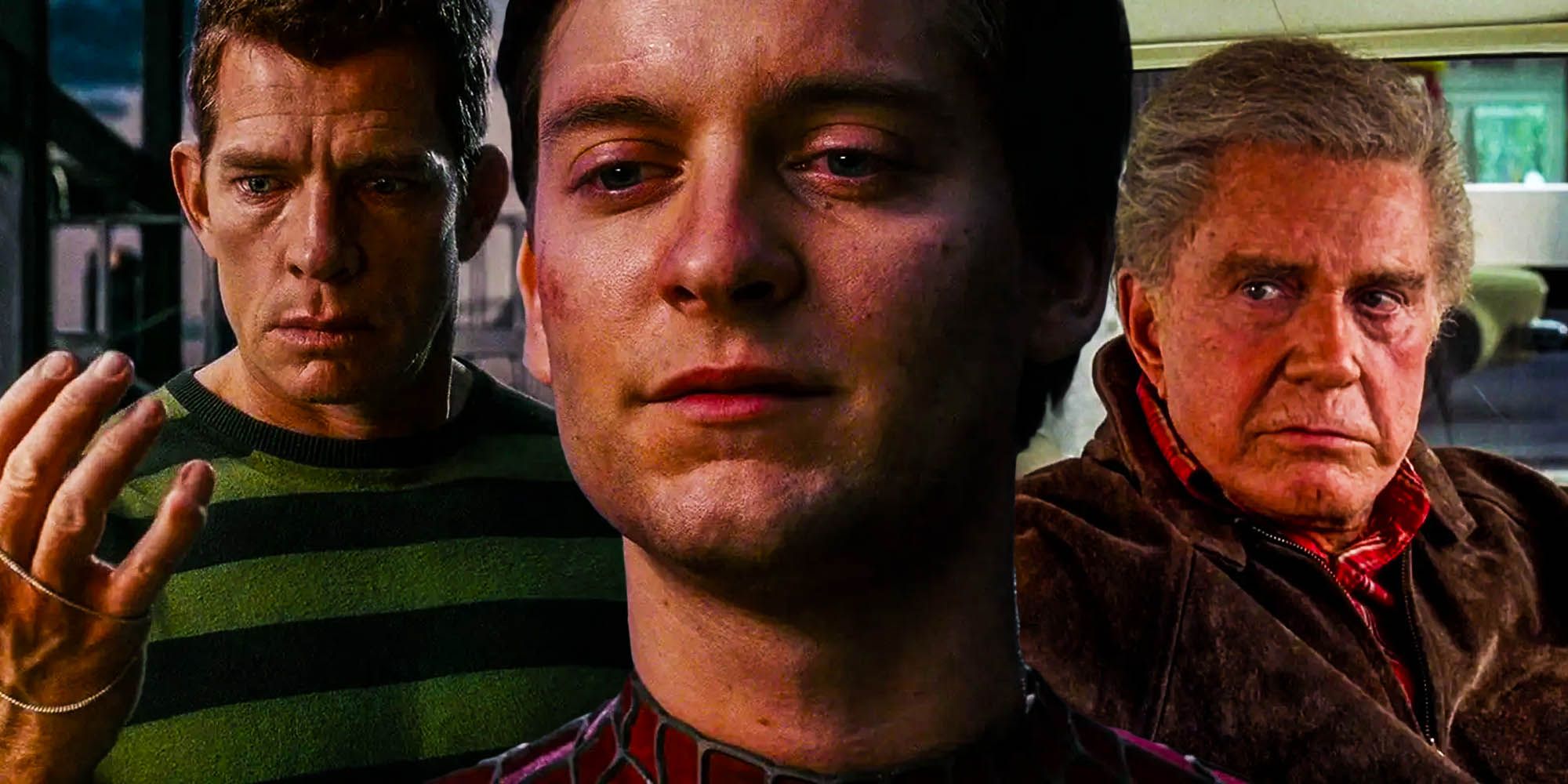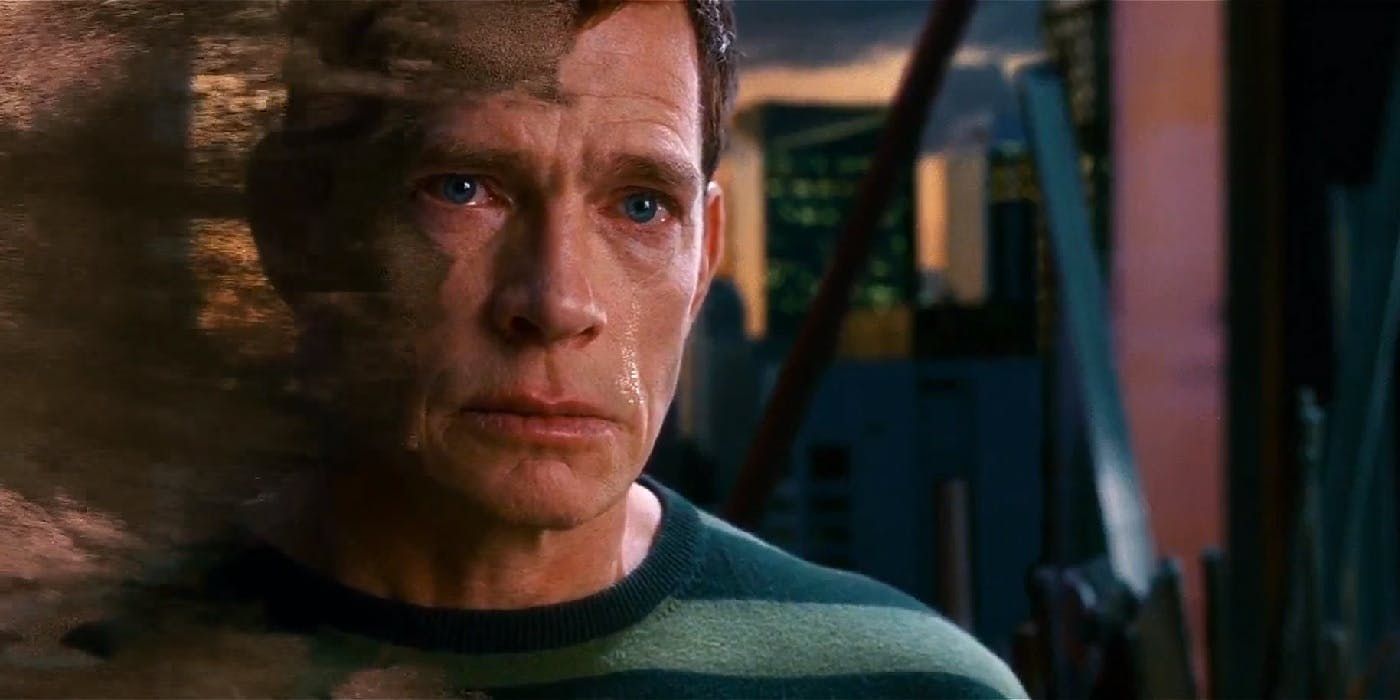
Sam Raimi’s Spider-Man 3 is often criticized for a major retcon made to Uncle Ben’s death, but this retcon ultimately doesn’t change Peter Parker’s classic origin story. Raimi’s third film in the iconic Spider-Man trilogy is often criticized, perhaps unfairly. While the film suffers from too many character arcs and plot threads and would have been better as two or three separate films, it does a more than adequate job adapting the Spider-Man comics and telling a sincere story about relatable, flawed, characters who are intertwined with the extraordinary, just as Stan Lee and Steve Ditko intended when co-creating the character. Uncle Ben’s retconned death may alter classic elements from the comic version, but it retains its most important aspects in regards to Peter’s characterization.
2002’s Spider-Man is, for much of the film’s first half, a faithful adaptation of Spider-Man’s 1962 origin story in issue 15 of the Amazing Fantasy comics. An awkward social pariah, Peter Parker receives incredible superpowers completely by accident and tries to make money off of his newfound abilities. In his success, Peter selfishly decides not to stop a robber, who later murders Uncle Ben, Peter’s adopted father. After hunting down and defeating the robber and realizing the cost of his mistake, Peter resolves to use his powers responsibly from then on. This lesson is the entire core of Peter Parker’s character, and one of the most important aspects to get right in an adaptation.
Spider-Man 3 seemingly changes this essential origin story through one of its villains, Flint Marko, aka the Sandman. Years before accidentally receiving superpowers, Marko was a petty criminal and the partner of Dennis Carradine, the robber who Peter didn’t stop in Spider-Man. For much of the film, it would seem that Peter’s actions had no impact on Uncle Ben’s death, as Marko reportedly shot Ben regardless of Carradine’s successful robbery. This understandably would anger fans, as it undermines the core of Peter’s characterization — but when Flint recounts the actual events to Peter at the end of the film, he reveals that he didn’t kill Ben in cold blood and, for better or worse, Peter’s actions were directly tied to the situation’s outcome.

Before learning the truth, Peter believed that everything he’d done the night that Ben died was for nothing. He brutalized Carradine for seemingly killing Ben and terrified him enough to cause Carradine to fall to his death. With his powers enhanced by the newfound Venom symbiote suit (and his inhibitions nearly gone), Peter attempted to kill Flint Marko and avenge Uncle Ben, showing how far he’d fallen after his lesson in responsibility was seemingly invalidated.
Flint is characterized in Spider-Man 3 as a reluctant criminal who steals and robs for the sake of saving his terminally ill daughter. In his guilt at the end of the film, Marko gives Peter closure by revealing that he’d been Carradine’s getaway driver who was trying to steal Ben’s car. Ben tried to talk him down from this when Carradine came up behind Flint, startling him and causing his gun to discharge, killing Ben. The guilt-ridden Marko was too distraught to join Carradine in the car and thus avoided an encounter with Spider-Man.
This proves that, despite Spider-Man 3 changing Uncle Ben’s killer to the eventual Sandman, the retcon didn’t change the meaning of Peter Parker’s origin story. Peter’s refusal to stop Carradine directly led to him startling Flint and causing Uncle Ben’s death. If Peter had used his powers responsibly that night, his father figure would have survived. By having Flint Mark kill Uncle Ben, Sam Raimi introduced a major retcon to tie Spider-Man 3’s new villain into Peter’s story, but he cleverly did so without changing the core of Peter’s character.
Comments
Post a Comment